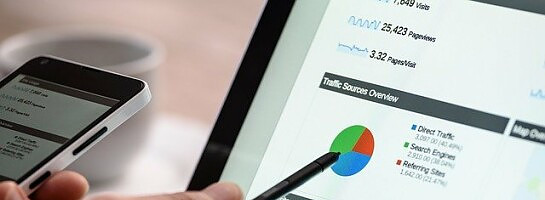The Ultimate Guide to Ebooks: How to Read, Buy, and Create Them
Published on June 7, 2023
Published on Wealthy Affiliate — a platform for building real online businesses with modern training and AI.
An ebook, or electronic book, is a book that is published in digital format. It can be read on a variety of devices, including computers, tablets, and smartphones. Ebooks are often cheaper than traditional paper books and can be easily downloaded and read.
Here are some of the advantages of ebooks:
- Portability: Ebooks can be stored on a variety of devices, so you can take them with you wherever you go.
- Cost: Ebooks are often cheaper than traditional paper books.
- Environmentally friendly: Ebooks don't require paper or ink, so they're better for the environment.
If you're looking for a convenient, affordable, and environmentally friendly way to read books, then ebooks are a great option.
Here are some of the most popular ebook formats:
- EPUB: EPUB is the most common ebook format. It's supported by most ebook readers and reading apps.
- MOBI: MOBI is a proprietary format developed by Amazon. It's supported by the Kindle e-reader and Kindle reading apps.
- PDF: PDF is a versatile format that can be used for both ebooks and documents. However, PDFs are less well-supported by ebook readers and reading apps than EPUB and MOBI.
If you're not sure which ebook format to choose, EPUB is a good option. It's supported by most devices and platforms, and it's the most widely used format.
Ready to put this into action?
Start your free journey today — no credit card required.
You can purchase ebooks from a variety of online retailers, including Amazon, Barnes & Noble, and Kobo. You can also download free ebooks from a variety of websites, such as Project Gutenberg and Feedbooks.
Once you've purchased or downloaded an ebook, you can read it on any device that supports the format. If you have a dedicated ebook reader, such as a Kindle or Nook, you can read ebooks directly on the device. If you don't have a dedicated ebook reader, you can read ebooks on your computer, tablet, or smartphone using an e-reading app.
Many different e-reading apps are available, such as Amazon's Kindle app, Barnes & Noble's Nook app, and Kobo's Book app. These apps allow you to read ebooks, highlight text, take notes, and adjust the font size and brightness.
Ebooks are a great way to enjoy books. They're convenient, affordable, and environmentally friendly. If you're looking for a new way to read, then ebooks are worth considering.
The length of an ebook is not fixed and can vary depending on the genre, content, and target audience. However, there are some general guidelines that can help you determine the appropriate length for your ebook.
- Short ebooks (5,000-10,000 words) are ideal for quick reads or for providing readers with a taste of your work. They can be used as lead magnets, marketing tools, or to share your expertise on a specific topic.
- Medium-length ebooks (10,000-25,000 words) are a good option for providing more in-depth information on a topic. They can be used to teach readers new skills, provide them with practical advice, or tell a story.
- Long ebooks (25,000+ words) are best for readers who are looking for a more immersive experience. They can be used to tell a complex story, provide comprehensive information on a topic, or offer a unique perspective on a subject.
Ultimately, the best way to determine the length of your ebook is to consider the needs of your target audience and the content you want to include. If you're not sure how long your ebook should be, it's always a good idea to get feedback from beta readers or other readers in your target audience.
Here are some additional tips for determining the length of your ebook:
- Consider the genre of your ebook. Some genres, such as romance and mystery, are typically shorter than others, such as non-fiction and self-help.
- Think about the level of detail you want to include. If you're writing a technical ebook, you'll need to include more detail than if you're writing a novel.
- Consider the age and reading level of your target audience. Younger readers may prefer shorter ebooks, while older readers may be more comfortable with longer books.
- Keep in mind the price you want to charge for your ebook. Longer ebooks typically command a higher price than shorter ebooks.
By following these tips, you can determine the ideal length for your ebook and create a product that your readers will love.
Thanks,
Kevin
Share this insight
This conversation is happening inside the community.
Join free to continue it.The Internet Changed. Now It Is Time to Build Differently.
If this article resonated, the next step is learning how to apply it. Inside Wealthy Affiliate, we break this down into practical steps you can use to build a real online business.
No credit card. Instant access.
